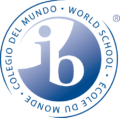Inquiring Minds is delighted to share the following reflection from one of Richland’s Grade 5 students, M.C. His Silver Birch Book Club composition is highly insightful, creative, and moving. We couldn’t possibly be the only ones to read it – and hope you will be as equally impressed by his thoughtful words.
 Making Bombs for Hitler, by Marsha Forchuk Skrypuch, was very sad, but very interesting and entertaining. The major life lesson that I take from this book is that I should be thankful for what I have. This book had me crying at some points. All of the characters in this book – the slave labourers at least, have nothing. The only thing they can do, is do their best at their job and hope and pray that their supervisors are impressed. People like us have everything – Xbox, Wii, toys, etc. In Making Bombs for Hitler, I thought to myself, that people like us have everything and then still get more, and people like Lida and Luke have to literally work for their lives. I was sad when I read this book because I felt very selfish. Another life lesson in this book is that you should treat everyone the same. Hitler killed people because he thought they were “different” or “sub-human” when clearly, if anyone was wrong it was definitely him. I don’t know the real reason behind him wanting to do this, but he wanted to create the “perfect” Aryan race. I definitely think he was wrong in trying to do this. He was wrong in everything that he tried to do related to the war. In reading about what he did I realized that treating everyone the way you want to be treated is not just a saying. What he did taught me that.
Making Bombs for Hitler, by Marsha Forchuk Skrypuch, was very sad, but very interesting and entertaining. The major life lesson that I take from this book is that I should be thankful for what I have. This book had me crying at some points. All of the characters in this book – the slave labourers at least, have nothing. The only thing they can do, is do their best at their job and hope and pray that their supervisors are impressed. People like us have everything – Xbox, Wii, toys, etc. In Making Bombs for Hitler, I thought to myself, that people like us have everything and then still get more, and people like Lida and Luke have to literally work for their lives. I was sad when I read this book because I felt very selfish. Another life lesson in this book is that you should treat everyone the same. Hitler killed people because he thought they were “different” or “sub-human” when clearly, if anyone was wrong it was definitely him. I don’t know the real reason behind him wanting to do this, but he wanted to create the “perfect” Aryan race. I definitely think he was wrong in trying to do this. He was wrong in everything that he tried to do related to the war. In reading about what he did I realized that treating everyone the way you want to be treated is not just a saying. What he did taught me that.
This book made it seem like the characters’ lives were so terrible that I couldn’t think of any way that I could possibly relate to these poor kids. I have never once in my life been in situations as dreadful and grim as these. I don’t think anyone that I have ever met has ever been in a situation even close to as dangerous and gruesome as these. I strongly hope that no children ever have to go through this again. I wish these situations would have NEVER happened. For example, when Lida was being fed at the barracks and everyone was being fed well, Lida and the other Russians had a separate bowl of soup, a separate type of soup (with only turnips and bugs instead of the beef stew), and even a separate ladle. She was called a “sub-human” by the person who was serving the soup and forced to eat it anyway. The thought of anyone having to go through this again is utterly terrifying.
I can only think of one conversation that we have had in class that can relate to this book. I think the talk about “what is normal” relates because of Hitler. The whole reason that Hitler started the war was because he thought that there were only a few types of people who are “normal.” For example, Hitler killed anyone who fit these descriptions: children, women, political rivals, mentally handicapped, physically handicapped, and gypsies. The point of the war was to eliminate everybody who wasn’t “normal”. This book relates to the conversation about normal because the point of the war was normality, and the point of the conversation is that there is no normal.
After reading this, I would like you to know that despite what I have said, it was a very good book. It was sad and sometimes upsetting, but it was a very good book. It was well written, and it was a book that made me never want to put it down. It was sad for most of the book, and it waits until the absolute last page of the entire book to have a happy ending. After all the sadness in the entire book, it still has a happy ending. I promise you that you will like this book, if you like the type of book that gets you attached to the characters. It is exciting, sad, scary, interesting, and suspenseful. Please take into consideration my recommendation. I liked every part of this book and I hope that you will too! I look forward to hearing what you think!










What a powerful essay about my book, Making Bombs for Hitler. Some people have asked me why I don’t write adult books instead of children’s books, when the topic is so serious. This essay is an example of why I love writing for a younger audience. Thank you!
M.C., every author hopes that their book finds just one reader who completely understands the story they worked so hard to capture on paper. Your heartfelt essay is a tribute to your passion as a reader, your compassion as a human being, and your own considerable skill as a writer. I hope you will keep on writing and that one day we will be reading books by M.C. that will move readers the same way Marsha Skrypuch’s book moved you.
Wow – I’m really flattered that you would say something about my essay. Everything that I said in there was true. This book touched my heart. I am very excited to meet you tomorrow. Everything that you wrote and how you wrote it – wow. It is a very big honour to have you respond to me. What you said about my essay made me feel very good. Thank you, and I can’t wait to see you in person!